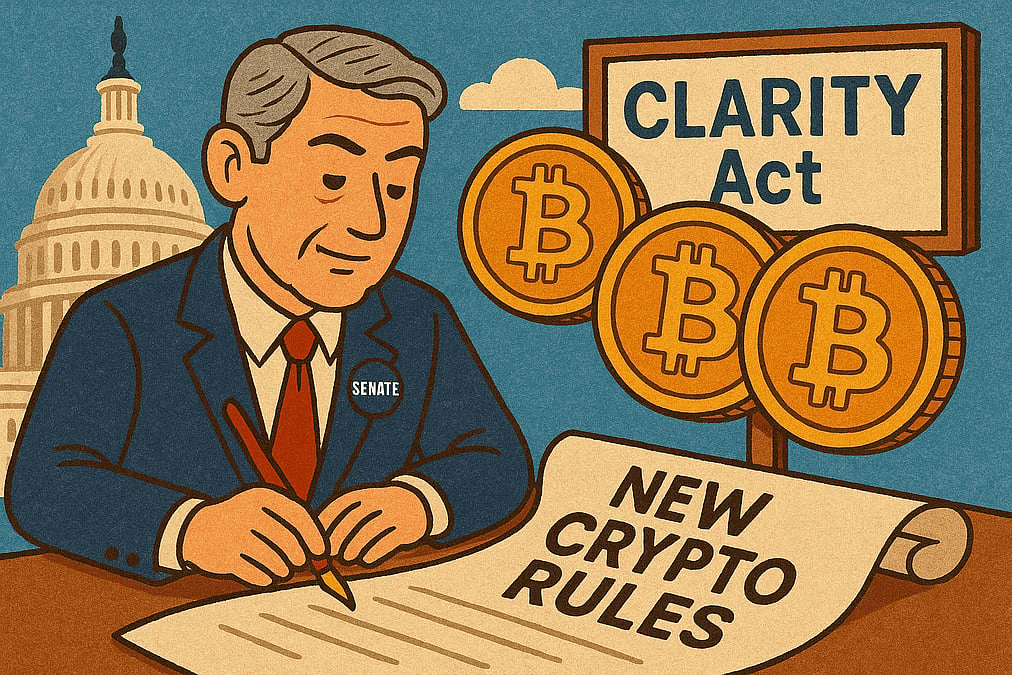In the landscape of cryptocurrencies, often dominated by regulatory uncertainty, a new American legislative proposal promises to bring order: the #CryptoClarityAct
But what exactly is it and why is it making such a big splash in the industry?
What is the Crypto Clarity Act?
Presented by a bipartisan group in the US Congress, the Crypto Clarity Act aims to provide legal clarity on one of the thorniest issues in the crypto ecosystem: when is a digital asset considered a "commodity" and when is it a "security"?
This distinction is crucial: in the United States, commodities fall under the jurisdiction of the CFTC (Commodity Futures Trading Commission), while securities are regulated by the stricter SEC (Securities and Exchange Commission). The lack of clear criteria has generated years of legal battles, uncertainty for investors, and a brake on innovation.
The central point of the proposal
The bill proposes an objective test to determine whether a crypto asset should be treated as a commodity or a security. It particularly focuses on decentralized tokens, which, once launched and distributed, often have no more a "central entity" that drives their value.
If a token is sufficiently decentralized, then it should not be treated as a security according to traditional rules.
Why is it important according to some?
Currently, many crypto projects are paralyzed by the fear of lawsuits or the lack of guidelines. The Crypto Clarity Act could:
Provide regulatory certainty to developers
Better protect investors by distinguishing serious projects from scams
Attract innovation and capital to the USA, reducing the flight to more permissive jurisdictions
Who supports it?
The project has gained bipartisan support: both Democrats and Republicans recognize that a clear framework is essential for the digital economy. Influential figures in the crypto world, such as Coinbase and a16z Crypto, have praised its principles.
And the criticisms?
However, there are concerns. Some fear that the definition of "decentralization" may be too vague or easily manipulable. Others believe that overly permissive laws could open the door to fraud and wild speculation.
Global implications
If approved, the Crypto Clarity Act could become an international benchmark. Other countries might follow suit to attract blockchain companies by offering clear and stable rules. Europe, with MiCA (Markets in Crypto-Assets Regulation), is already moving in this direction.
Conclusion
The Crypto Clarity Act is more than just a law: it is a signal that the institutional world is finally seeking a serious dialogue with decentralized innovation. If implemented carefully, it could mark the beginning of a new era for the crypto sector: clearer, more mature, and more robust.
What do you think 🤔? Better to regulate or let the market decide?
👇 Comment with your opinions! 😉


